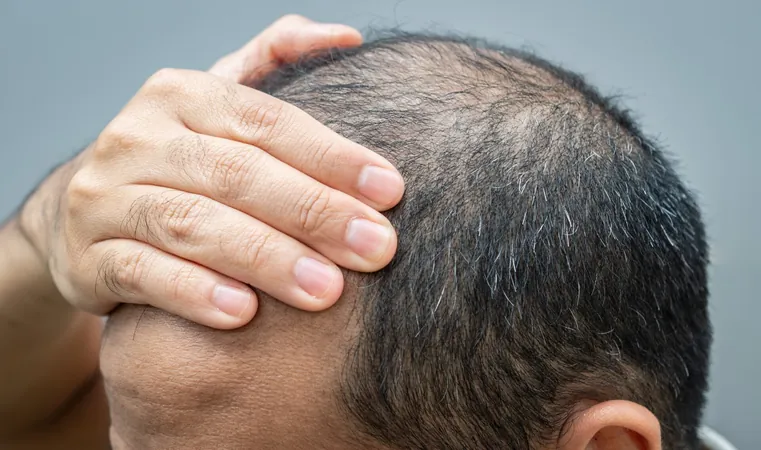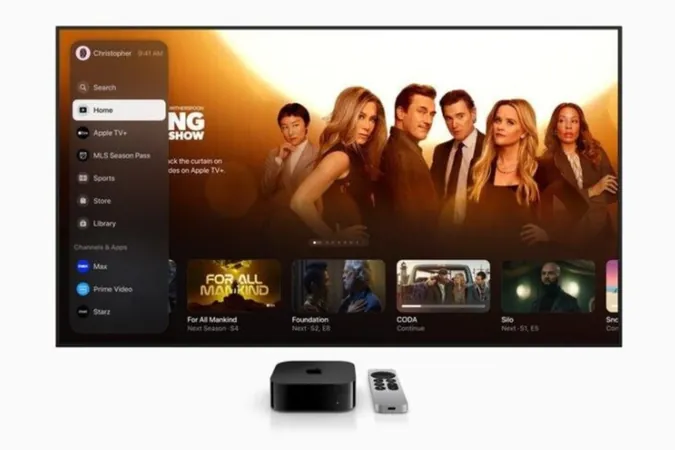
Oral Minoxidil for Hair Loss: Is It the Game-Changer We’ve Been Waiting For?
2024-11-24
Author: Lok
Introduction
Hair loss treatments might soon be undergoing a major transformation, thanks to a groundbreaking consensus from an international panel of dermatology experts recommending the use of a pill version of minoxidil. Traditionally known as the active ingredient in the popular topical treatment Rogaine, minoxidil is now gaining traction in an oral format as a potential game-changer for those suffering from hair thinning and loss.
Recent Developments
In a pivotal paper published recently in *JAMA Dermatology*, dermatologists from 12 countries have come together to shed light on low-dose oral minoxidil as a viable treatment option for both teens and adults dealing with hair loss. This new recommendation is particularly important as it aims to widen the reach of this treatment option, especially for those who may have found topical minoxidil ineffective or inconvenient.
Benefits of Oral Minoxidil
For over 30 years, topical minoxidil has been the go-to solution for hair loss; however, emerging studies suggest the oral version may offer unique benefits. Topical applications are often associated with unpleasant side effects such as scalp irritation, redness, and burning sensations. Moreover, pet owners must exercise caution, as topical minoxidil is toxic to cats and dogs. In contrast, a daily pill circumvents these inconveniences while being affordable for many. Some studies even show that oral minoxidil may be more effective since individuals often absorb topical treatments poorly through the scalp.
FDA Status and Awareness
Currently, oral minoxidil remains a niche option, primarily due to its off-label status—only the topical variant is FDA-approved for hair loss. This may contribute to the lack of awareness among physicians, complicating their ability to prescribe it correctly. The authors of the recent study sought to address this knowledge gap by consulting with 43 hair loss specialists across the globe on proper dosing and patient recommendations.
Expert Opinions
The consensus articulated in the study emphasizes that low-dose oral minoxidil could be an excellent choice for individuals who have difficulty with topical options or who are dissatisfied with their results. “If topical minoxidil application is logistically challenging, causes undesirable styling issues, or is ineffective, low-dose oral minoxidil may be considered,” stated Dr. Paradi Mirmirani, a co-author of the study.
Safety Considerations
However, it's important to note that oral minoxidil was originally developed to treat severe hypertension and comes with a black box warning pertaining to potential heart risks. While some health professionals assert that the dosages prescribed for hair loss are generally lower and less risky, the consensus advises caution. Individuals with existing heart issues—like pericarditis—should avoid this treatment altogether and consult their healthcare provider.
Conclusion
With this illuminating consensus, dermatologists may feel more empowered to prescribe oral minoxidil, potentially revolutionizing the treatment landscape for many suffering from hair loss. “This statement provides critical information regarding indications, dosing, and possible side effects to enhance healthcare providers’ confidence in its application,” commented Dr. Brittany Craiglow from Yale University. As awareness and understanding of oral minoxidil grow, it could indeed become the mainstream alternative more people have been waiting for in the battle against hair loss. If you’ve felt trapped by ineffective topical solutions, the oral route could be your next best move—stay tuned for more developments in this hair-raising story!





 Brasil (PT)
Brasil (PT)
 Canada (EN)
Canada (EN)
 Chile (ES)
Chile (ES)
 España (ES)
España (ES)
 France (FR)
France (FR)
 Hong Kong (EN)
Hong Kong (EN)
 Italia (IT)
Italia (IT)
 日本 (JA)
日本 (JA)
 Magyarország (HU)
Magyarország (HU)
 Norge (NO)
Norge (NO)
 Polska (PL)
Polska (PL)
 Schweiz (DE)
Schweiz (DE)
 Singapore (EN)
Singapore (EN)
 Sverige (SV)
Sverige (SV)
 Suomi (FI)
Suomi (FI)
 Türkiye (TR)
Türkiye (TR)